2024 Schedule
June 4th – Meet and Greet
The Wyndham Newport Hotel
Johnny’s Restaurant Event Patio – 5:00 PM – 7:00 PM
June 5th – Speaker Presentations
The Wyndham Newport Hotel
Registration and Breakfast: 7:30 AM – 8:30AM
Opening Remarks: 8:00 AM – 8:30 AM
MC

Robert Burton
Managing Director
International Crisis Management Conference
Keynote

Gen. Clayton M. Hutmacher
Major General, USA (Ret.) PRESIDENT & CEO
Special Operations Warrior Foundation
More about Robert
Rob is a Principal at PreparedEx and The International Crisis Management Conference, managing a team of crisis preparedness professionals. He has over 20 years of experience preparing for and responding to crises.
His leadership role includes assisting clients in designing, implementing, and evaluating crisis, emergency, security, and business continuity management programs. Through the preparedness work Rob is involved in, he has trained crisis teams at all enterprise levels, from operations to executive leadership teams. Among some of the biggest brands that have put their trust in Rob are Facebook, Nestle, Ubisoft, LVMH, BASF, Unisys, AstraZeneca, State Street Bank and Reckitt, and many other Fortune 500 corporations.
During his career, Rob has worked as a crisis management consultant for the US State Department’s Anti-Terrorism Assistance Program in Pakistan and Afghanistan, where he negotiated with the UN and Pashtun tribal warlords. He also served with the United Kingdom Special Forces, operating under hazardous covert and confidential conditions. Rob has a Queen’s Commendation for Bravery.
Earlier in his career, Rob was part of a disciplined and prestigious unit, The Grenadier Guards, where he served Her Majesty Queen Elizabeth II at the Royal Palaces in London. Rob was a highly trained and experienced infantryman serving in Desert Storm. Rob was a trained sniper and reconnaissance platoon team leader during this period.
Rob has keynoted disaster recovery conferences and participated in live debates on FOX News regarding complex security requirements and terrorism. Rob co-founded the International Crisis Management Conference’s Center of Excellence for crisis management professionals.
More about Clayton
MG Hutmacher became the President and Chief Executive Officer of the Special Operations Warrior Foundation in September 2018.
He was a career United States Army Officer and retired in 2018 having served over 40 years in uniform. As an Army Special Operations Aviator, he commanded at every level during his three tours with the 160th Special Operations Aviation Regiment, where he served as the MH-60 Direct Action Penetrator platoon leader, company operations officer, executive officer and commander of 1st Battalion, Regimental Commander, and the Commanding General of the U.S. Army Special Operations Aviation Command.
MG Hutmacher’s last active duty assignment was the Director of Operations in the U.S. Special Operation Command, Tampa, FL. His previous assignment was as the deputy Commanding General of the United States Army Special Operations Command at Fort Bragg, NC.
A native of Wenatchee, Washington, he was awarded a Bachelor’s Degree in Aerospace Management from Embry Riddle Aeronautical University, a Master’s Degree in National Security and Strategic Studies from the United States Naval Command and Staff College, and a Master’s Degree in Strategic Studies from the United States Army War College.
8:30 AM – 9:15 AM

Vincent B. Davis
Senior Director Disaster Services
Feeding America
Creating Sustainable Emergency Management Programs in Corporate Organizations
Highlights of my presentation will be:
• Lessons learned from my experiences at Walgreens Co., Sony, and Amazon
• Why EM in corporate is often the first to be cut during economic downturns
• 5 Steps and recommendations for corporate crisis managers to build a sustainable program
More About Vincent
Vince Davis has over three decades of diverse experience in emergency and crisis management, and business continuity. He has served numerous roles in the U.S. military, government, disaster relief, and corporate environments, and currently serves as Senior Director of Disaster Services for Feeding America, and is Founder-President of Preparedness Matters, LLC.
A U.S. Air Force veteran, Vince served as an air traffic controller during the Vietnam era. Following active duty, he joined the Illinois National Guard as a public information specialist, where he served for 19 years, retiring in 2001. The following year, Vince joined FEMA as External Affairs and Community Relations Cadre Manager, where he led field teams in response to 11 Presidential disasters.
After leaving FEMA, Vince served as regional preparedness manager for the American Red Cross of Greater Chicago, and as project manager for the Regional Catastrophic Planning Team, where he was responsible for overseeing development of the Regional Catastrophic Incident Coordination Plan for 14 counties in the region.
In 2011, Vince joined Walgreens Co. as corporate Manger of Emergency Preparedness and Response, developing disaster plans and frameworks for the company’s 8,600 U.S. stores and facilities. He served similar roles at Sony PlayStation, and later at Amazon, where he developed plans for workforce and workplace disaster preparedness and response for the company’s Seattle headquarters.
Vince continues to pursue his passion of preparing underserved communities through his Preparedness Matters LLC, which he formed in 2012, following publication of his first book; Lost and Turned Out – A Guide to Preparing Underserved Communities for Disasters. In 2016 Vince co-authored the, Emergency Guidebook for Broadcasters Serving Indian Country with Native Public Media. He also authored, The Native Family Disaster Preparedness Handbook, (2017) in collaboration with several native organizations.
Vince serves on the Board of Directors for the National Volunteer Organizations Active in Disasters (NVOAD). He is an advisory board member for the Institute for Diversity and Inclusion in Emergency Management (I-DIEM) and is a lifetime member of the Black Emergency Managers Association (BEMA) International.
Vince is the father of five adult children and grandfather of eight. He and his wife Maria live in the Chicago area.
9:20 AM – 10:05 AM

Heather Engel
Managing Partner
Strategic Cyber Partners
Navigating Ransomware: Challenges and Incident Response Strategies
Ransomware attacks continue to plague organizations worldwide, causing significant disruptions and financial losses. In this presentation, we delve into the complex landscape of ransomware incidents and explore effective incident response planning. We’ll highlight the following key challenges:
- Sophisticated Threat Landscape: Ransomware variants are constantly evolving, making detection and prevention a formidable task. We’ll discuss strategies to stay ahead of threat actors.
- Balancing Payment Dilemmas: Organizations often grapple with the decision of whether to pay the ransom. We’ll explore the ethical, legal, and financial considerations involved.
- Coordination with Stakeholders: Effective incident response requires seamless collaboration among internal teams, external partners, and service providers. We’ll emphasize the importance of coordination.
- Testing and Preparedness: Many organizations underestimate the need for regular testing of incident response plans. We’ll address common pitfalls and stress the value of preparedness exercises.
Join us as we dissect the intricacies of ransomware incidents and equip you with actionable insights to enhance your organization’s resilience.
More About Heather
Heather Engel is a strategic advisor specializing in risk management, cyber security, business continuity and incident response planning, and security program development. Ms. Engel graduated from Penn State and earned a Master of Business Administration from Florida Institute of Technology. She holds numerous industry certifications including CISSP, CISM, and CISA. She is a former member of the Board of Directors of the Virginia Economic Development Partnership and currently sits on the Riverside Health System Board of Directors. She is a frequent contributor to media and podcasts and is a recognized expert in risk analysis, incident management, and security frameworks.
Break: 10:05 AM- 10:20 AM
10:20 AM – 11:05 AM

Robert Burton
Managing Director
International Crisis Management Conference
Interactive Tabletop Exercise: Crisis Team Simulation
Unlock Your Team’s Potential in Real-Time Crisis Management
Join us for an immersive Tabletop Exercise (TTX) designed to put your crisis management skills to the test in a dynamic and collaborative environment. Facilitated by our esteemed colleague, Rob, this exercise is not just a presentation but an interactive journey through the complexities of real-world decision-making.
Scenario Overview
Conference attendees will be grouped into tables, each forming a unique crisis response team. With 6 to 8 members per team, you’ll delve into a meticulously crafted scenario that simulates high-stakes situations. As the event unfolds, your team will face several “injects” – unexpected developments that challenge your ability to adapt, strategize, and communicate under pressure.
Exercise Objectives
- Enhance Collaborative Problem-Solving: Learn to leverage diverse skill sets and perspectives within your team.
- Develop Strategic Agility: Improve your ability to make critical decisions swiftly and effectively amidst evolving situations.
- Strengthen Communication: Forge stronger team dynamics through clear and decisive communication pathways.
- Gain Practical Insights: Reflect on the exercise to extract valuable lessons that can be applied to real-world crisis scenarios.
Active Participation
As a member of a crisis team, you’ll navigate through the simulated injects, making decisions that will influence the outcome of the scenario. Each decision point is a learning opportunity, designed to mimic the pressure and uncertainty of real-life crises.
Why Participate?
This Tabletop Exercise offers a unique blend of education, teamwork, and challenge. It’s an opportunity to test your limits, learn from others, and gain insights into the art of crisis management. Whether you’re a seasoned professional or new to the field, this exercise promises to be a rewarding experience.
Join Us
Don’t miss this chance to contribute to your team’s success and elevate your professional skills. Embrace the challenge, and let’s navigate the complexities of crisis management together. See you at the conference!
More about Robert
Rob is a Principal at PreparedEx and The International Crisis Management Conference, managing a team of crisis preparedness professionals. He has over 20 years of experience preparing for and responding to crises.
His leadership role includes assisting clients in designing, implementing, and evaluating crisis, emergency, security, and business continuity management programs. Through the preparedness work Rob is involved in, he has trained crisis teams at all enterprise levels, from operations to executive leadership teams. Among some of the biggest brands that have put their trust in Rob are Facebook, Nestle, Ubisoft, LVMH, BASF, Unisys, AstraZeneca, State Street Bank and Reckitt, and many other Fortune 500 corporations.
During his career, Rob has worked as a crisis management consultant for the US State Department’s Anti-Terrorism Assistance Program in Pakistan and Afghanistan, where he negotiated with the UN and Pashtun tribal warlords. He also served with the United Kingdom Special Forces, operating under hazardous covert and confidential conditions. Rob has a Queen’s Commendation for Bravery.
Earlier in his career, Rob was part of a disciplined and prestigious unit, The Grenadier Guards, where he served Her Majesty Queen Elizabeth II at the Royal Palaces in London. Rob was a highly trained and experienced infantryman serving in Desert Storm. Rob was a trained sniper and reconnaissance platoon team leader during this period.
Rob has keynoted disaster recovery conferences and participated in live debates on FOX News regarding complex security requirements and terrorism. Rob co-founded the International Crisis Management Conference’s Center of Excellence for crisis management professionals.
11:10 AM – 11:55 AM

Sean Cunningham
Group Crisis Manager
Vestas
Finally defining the role of the strategic leadership in a crisis
Relatively speaking, a lot of time and energy is spent preparing teams and individuals in what they need to do at the scene of an incident.
Significantly less time and energy is spent on training and preparing crisis management teams to support incidents and achieve objectives.
Harsh to say it, but effectively no time is spent on the strategic layers of private and public corporations to help them understand what is required of them in a crisis. It is assumed by us that they know what is going on and what to do.
They will turn up to crisis management training and ask to sit at the back and observe so as not to interfere with the learning of others, or to ensure they are not put in a position where they may be embarrassed. Some do get involved and then proceed to demonstrate frontline leadership (as required at a scene) and not crisis management skills. Or they assume the position of chair and play that role as they have learned it, by watching others.
This is not their fault.
In this session we will look at a model for senior executives to follow in a crisis. This model will help to give perspective to their decision making, bring clarity to their communication, and ensure that their level of accountability is fully understood by all concerned.
More About Sean
He was a government advisor on kidnapping, deployed to lead several operations overseas, and was awarded an OBE for international hostage negotiation.
Lunch: 11:55 AM – 12:30 PM
12:30 PM – 1:15 PM
Panel Discussion

Vincent B. Davis
Senior Director Disaster Services
Feeding America

Sean Cunningham
Group Crisis Manager
Vestas
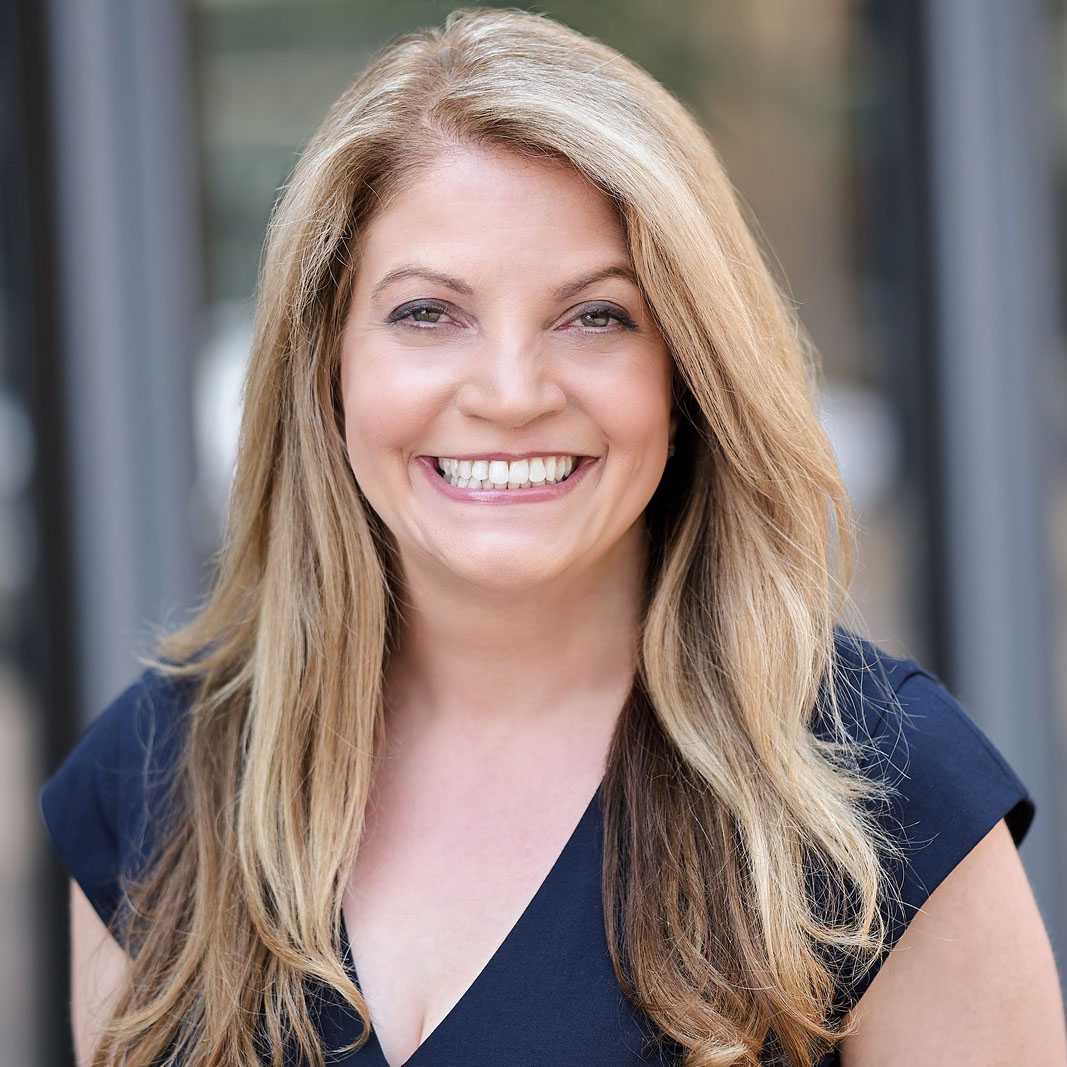
Ashley Goosman
Business Continuity & Crisis Management Specialist
Liberty Mutual Insurance
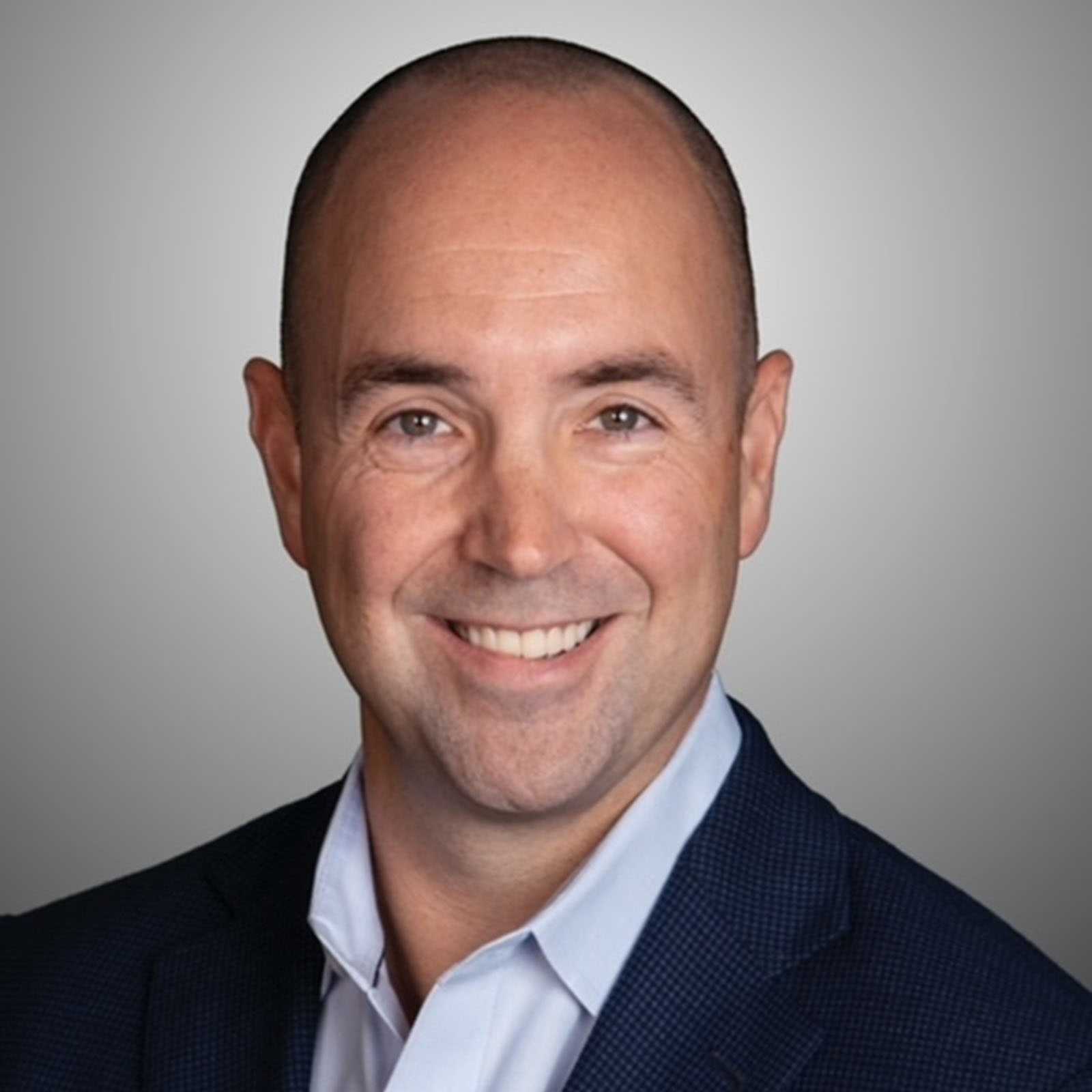
Brendan Monahan
Head, US Crisis Management and Resilience

Sally Branson
Managing Director
The Sally Branson Consulting Group SBCG
Crisis Chronicles: Insights from the Frontlines
Overview: The panel discussion at this year’s conference promises to be a valuable opportunity for attendees to learn from experts with diverse perspectives and experiences in crisis management. The insights these panelists share will help organizations and individuals better understand current crises and equip them with the knowledge and strategies needed to navigate and manage such situations effectively.
Diverse Expertise: The five panelists selected for this year’s conference bring diverse expertise and experience. Each panelist has a unique background and insights into crisis management.
Addressing Current Crises: The panel discussion’s primary focus is addressing the current crises that are making headlines. These crises can encompass a wide range of issues, including but not limited to natural disasters, public health emergencies, economic downturns, and social or political unrest. The panelists will analyze these crises and provide valuable insights into how they can be managed effectively.
Insider Knowledge: The panelists aren’t just experts in their fields; they also possess insider knowledge from their direct involvement in crisis management. This insider perspective can be invaluable in understanding crises’ challenges and intricacies.
Local and Global Perspective: The panelists’ perspectives on crisis management are not limited to a specific scale or scope. They have experience dealing with crises at the local level, where seemingly minor incidents can escalate into large-scale crises if not appropriately managed. Simultaneously, they have dealt with global geopolitical challenges, which often require different strategies and considerations.
Preparation and Management Strategies: The panelists will discuss the current crises and share strategies for better preparation and management. This can include proactive measures that organizations and governments can take to mitigate the impact of potential crises and crisis response tactics that can be employed when a crisis is already underway.
Interactive Q&A: The conference format may include an interactive Q&A session where attendees can pose questions to the panelists. This allows for a dynamic exchange of ideas and insights, enabling participants to gain a deeper understanding of crisis management from various angles.
More About Vince
Vince Davis has over three decades of diverse experience in emergency and crisis management, and business continuity. He has served numerous roles in the U.S. military, government, disaster relief, and corporate environments, and currently serves as Senior Director of Disaster Services for Feeding America, and is Founder-President of Preparedness Matters, LLC.
A U.S. Air Force veteran, Vince served as an air traffic controller during the Vietnam era. Following active duty, he joined the Illinois National Guard as a public information specialist, where he served for 19 years, retiring in 2001. The following year, Vince joined FEMA as External Affairs and Community Relations Cadre Manager, where he led field teams in response to 11 Presidential disasters.
After leaving FEMA, Vince served as regional preparedness manager for the American Red Cross of Greater Chicago, and as project manager for the Regional Catastrophic Planning Team, where he was responsible for overseeing development of the Regional Catastrophic Incident Coordination Plan for 14 counties in the region.
In 2011, Vince joined Walgreens Co. as corporate Manger of Emergency Preparedness and Response, developing disaster plans and frameworks for the company’s 8,600 U.S. stores and facilities. He served similar roles at Sony PlayStation, and later at Amazon, where he developed plans for workforce and workplace disaster preparedness and response for the company’s Seattle headquarters.
Vince continues to pursue his passion of preparing underserved communities through his Preparedness Matters LLC, which he formed in 2012, following publication of his first book; Lost and Turned Out – A Guide to Preparing Underserved Communities for Disasters. In 2016 Vince co-authored the, Emergency Guidebook for Broadcasters Serving Indian Country with Native Public Media. He also authored, The Native Family Disaster Preparedness Handbook, (2017) in collaboration with several native organizations.
Vince serves on the Board of Directors for the National Volunteer Organizations Active in Disasters (NVOAD). He is an advisory board member for the Institute for Diversity and Inclusion in Emergency Management (I-DIEM) and is a lifetime member of the Black Emergency Managers Association (BEMA) International.
Vince is the father of five adult children and grandfather of eight. He and his wife Maria live in the Chicago area.
More about Sean
Sean is currently the Group Crisis Manager for Vestas, who design, manufacture, install, and service wind turbines worldwide.
His previous 10 years were divided between roles as a crisis consultant with Control Risks, and before that a Director of Security for a gambling company.
During a 30-year career in policing, he was Scotland Yard’s head of crisis negotiation.
He was a government advisor on kidnapping, deployed to lead several operations overseas, and was awarded an OBE for international hostage negotiation.
He has an MSc in Critical and Major Incident Psychology specialising in the accountability of advisors.
More about Ashley
Ashley Goosman, MBCP, MBCI, has nearly 20 years of experience in the public and private sectors. She’s managed multiple high-profile crisis events. She participated in the American Red Cross September 11 Recovery Program and Hurricane Katrina-Massachusetts’ Operation Helping Hand. As the Director of Emergency Services-Mass Dept. of Mental Health, she supported federal, state, and local emergency activations. She served as an adjunct Senior Instructor, teaching Terrorism and Disasters course for Health Care Administrators. Ashley has conducted business continuity and coordinated crisis events globally as a Risk Manager for Liberty Mutual Insurance.
More about Brendan
Since 2018, Brendan has directed the US crisis and resilience programs for a global pharmaceutical company, including coordinating the company’s US response to COVID-19. Prior to that, Brendan lead Security Resilience and Intelligence programs at two major critical infrastructure companies in the US.
He is a Steering Committee Member and former Chair of the ASIS Crisis Management and Business Continuity Community, and a founding member and former Chair of the New York Analyst Roundtable. Brendan has a BA from Boston College and an MA from Queen’s University of Belfast, Northern Ireland; and is MBCI and CBCP certified. Brendan is the author of the 2022 book, Strategic Corporate Crisis Management: Building an Unconquerable Organization.
More about Sally
Sally Branson brings over twenty years of Diplomatic, Military, Government, Not-for-profit and Corporate experience to her business. Sally has advised the most senior Australian politicians, both Australian and American senior military officials – including members of the Joint Chiefs of Staff (USA). She advised the Australian Government Cabinet and Ministry when she was Senior Press Secretary to an Australian Prime Minister.
Sally has planned and managed public affairs programmes of significant scale, risk and geopolitical importance. As Director of Sally Branson Consulting, she offers both proactive and reactionary management strategies to clients. Her clients count on her candid, pragmatic advice, delivered in a thoughtful, considerate manner.
Sally specialises in reputation management and leadership planning and strategy. She has worked with high-profile individuals experiencing significant reputation damage. Sally provides strategic planning for individuals to manage and grow positive public profiles.
1:20 PM – 2:05 PM

Susan Kargel
Founder & Principal Consultant
Cyber Realities for Third Party Logistics Providers and Their Trading Partners
In today’s interconnected world, third party logistic providers (3PLs) and trading partners are increasingly targeted and at risk of a cyberattack. Think of the acronym 3PL as a catch all term for companies involved in arranging the movement of goods around the world and clearing those goods through customs. 3PLs may include freight forwarders, customs brokers, truck drivers, carriers and more. These organizations are critical to keeping goods moving through the supply chain and are considered by the U.S. Government as critical infrastructure. When a 3PL falls victim to a cyberattack, shipments stop.
Today we will delve into:
• Vectors, Nodes, and Links, Oh My
• Operational Impacts & Enterprise Risk
• Operational Resilience and Preparedness
• Scenario Example
More About Susan
Susan Kargel, founder of SJKargel Consulting, has over 40 years’ experience in the Third-Party Logistics (3PL) industry. She specializes in helping 3PLs and their trading partners prepare to operate in a diminished capacity. She has direct cyberattack experience, held leadership roles on the global customs recovery team, as well as development of a Cyberattack Playbook Framework. Her company, SJKargel Consulting, offers a variety of workshops, milestone safeguarding, and tabletop exercises to assess operational processes, systems, dependencies, and gaps, helping companies identify strategies and contingencies to increase their capabilities.
2:10 PM – 2:55 PM
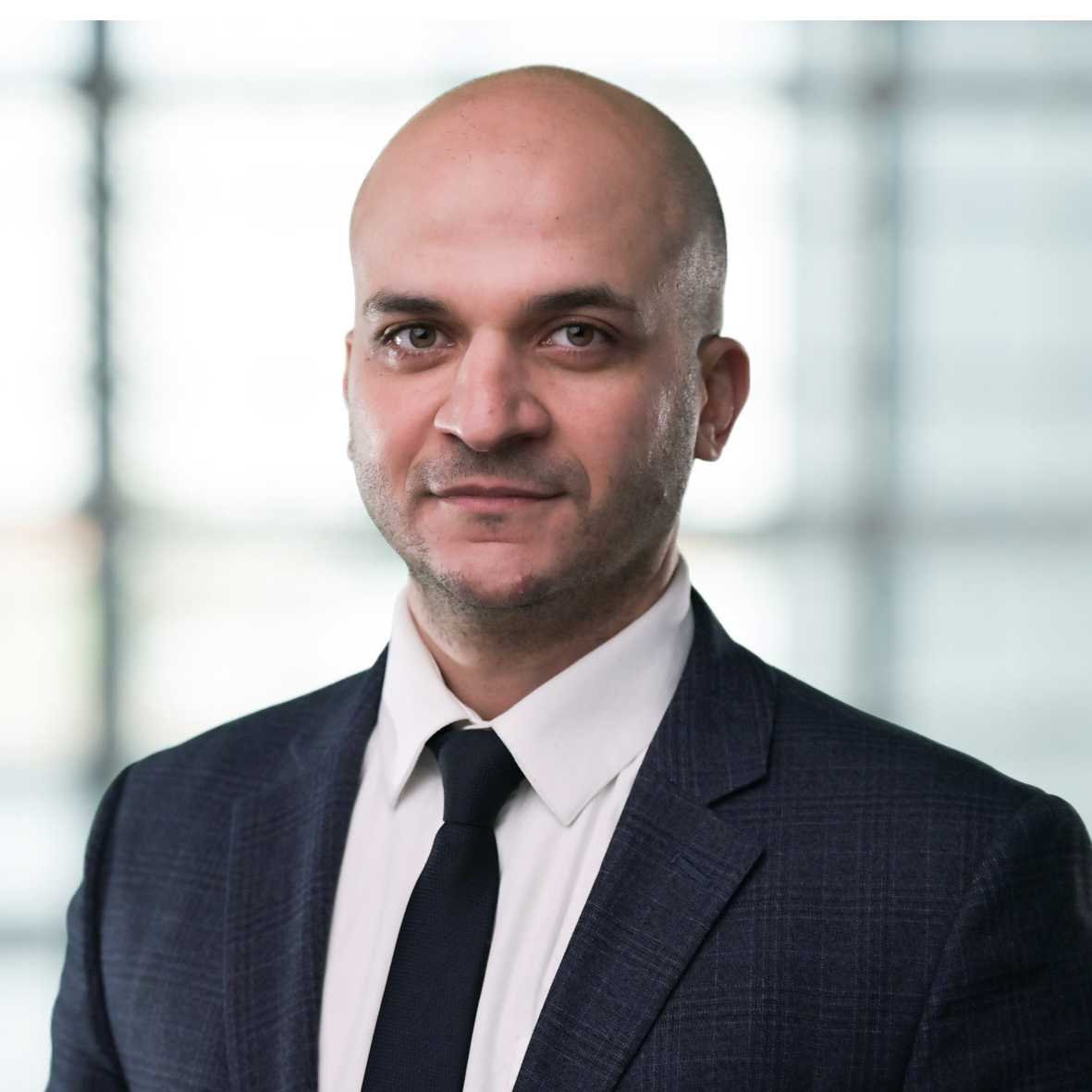
Eslam Eldakrory
Crisis Management, and Business Continuity Management Expert
Fundamentals of a successful tabletop exercises: The key 5 steps for a well-planned tabletop Exercise
1. Identify Organizational Risks and Vulnerabilities
• What are the most common sources to identify risks?
2. Identify Objectives and Goals of the Exercise
• How can you formulate precise exercise goals and learning objectives?
3. Select the Appropriate Scenario for the Organization
• How can you build a relevant scenario that resonates with the leadership team?
4. Scenario Development: Create Realistic Crisis Scenarios
• My 6 pro tips to make your scenario realistic?
5. Identify Key Participants and Roles
• Who do you need to have on your exercise day?
More About Eslam
With a proven track record in navigating the complexities of risk, crisis, and business continuity management, Eslam Eldakrory is a seasoned professional dedicated to helping organizations thrive in the face of challenges. With over 20 years of experience in the field, he has earned a reputation as a strategic thinker and a results-driven leader.
Eslam Eldakrory holds a Master degree in Finance, Certified Internal Auditor (CIA®), A Certificate in Risk Management and Assurance (CRMA®), Certified Business Continuity Professional (CBCP®), Certified in Risk and Information Systems Control® (CRISC®) and an ISO 22301 Senior Lead implementer® and an accredited ISO 22301-BCMS Trainer.
As a prominent figure in the risk management community, Eslam Eldakrory possesses an in-depth understanding of identifying, assessing, and mitigating threats across various industries. He has successfully guided organizations through a wide range of disruptions and Crisis situations, demonstrating a keen ability to develop and implement robust risk management strategies tailored to specific business needs.
In the realm of crisis management, Eslam Eldakrory is recognized for his calm and decisive approach in high-pressure situations. He has orchestrated effective crisis response plans, ensuring swift and well-coordinated actions during emergencies. His expertise lies not only in crisis resolution but also in post-event analysis, enabling organizations to learn and grow stronger from challenges faced.
Furthermore, Eslam Eldakrory is a thought leader in business continuity management, emphasizing the importance of preparedness and resilience in today’s volatile business landscape. He has developed comprehensive business continuity policies, frameworks, and playbooks for various complex global organizations, enabling businesses to maintain essential functions during disruptions and swiftly recover to normal operations.
In addition to his practical expertise, Eslam Eldakrory is a sought-after speaker and educator. He has shared his knowledge and insights at national and international conferences, empowering audiences with the tools and knowledge needed to proactively manage risks, navigate crises, and ensure business continuity.
Eslam Eldakrory continues to contribute to the field through his active involvement in professional organizations, research, and publications. He is passionate about staying at the forefront of industry trends and emerging technologies and advocating for cutting-edge solutions to safeguard businesses.
Eslam Eldakrory is a strong believer in sharing knowledge and had designed and published many successful courses and educational materials and has a strong presence in prominent online learning platforms.
Connect with Eslam Eldakrory to explore innovative approaches to risk management, crisis response, and business continuity planning. Follow him on LinkedIn for the latest updates on his insights and contributions to the field.
Break: 2:55 PM – 3:10 PM
3:10 PM – 3:55 PM
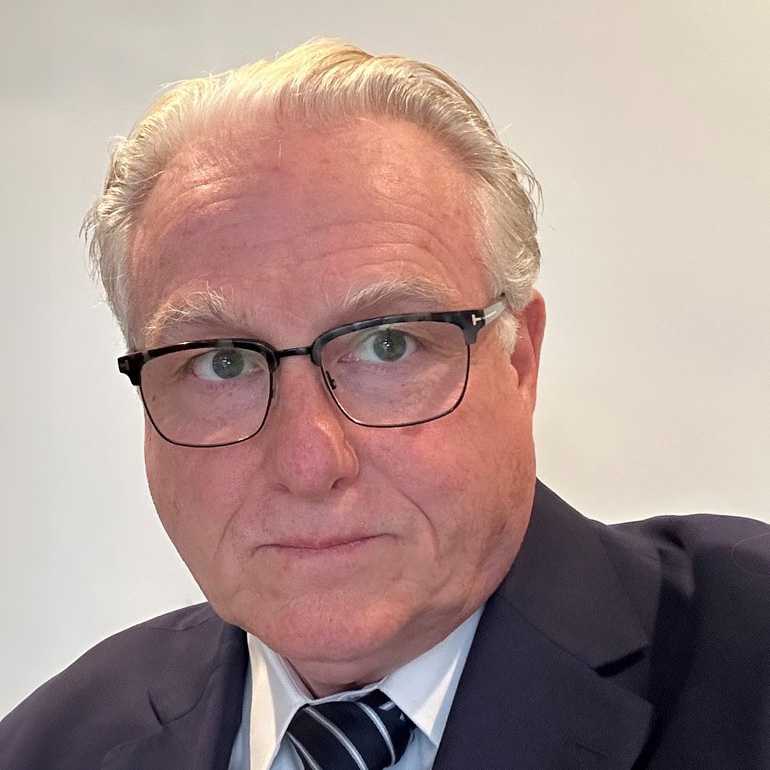
John Odermatt
Director, Crisis & Incident Management
Charter Communications
Building Effective Crisis Management Programs
Building effective crisis management programs will explore the challenges crisis management professionals along with business continuity professionals . Additionally, the presentation will include of a future forward looking lens in the use of AI and geospatial technology to shorten the response gap and create more effective crisis plans.
More About John
John Odermatt began his career in 1982 where he served as a New York City Housing Police Officer, patrolling public housing developments. John’s promotions with the Housing Authority Police and subsequently the New York City Police Department rise to the rank of Assistant Chief. His assignments include the Executive Officer of the NYPD’s Intelligence Division where he was the coordinator of the 55th United Nations General Assembly, Special Session and responsible for the security and coordination with Federal Agencies of over 300 dignitaries visiting New York City.
In 2000, John was detailed to New York City’s Office of Emergency Management as the First Deputy Commissioner located in 7 World Trade Center. After surviving the 9/11 attack, Mayor Rudolph Giuliani gave him responsibility for the coordination of over one hundred agencies for disaster recovery. In April 2002, Mayor Michael Bloomberg appointed John as Commissioner of New York City’s Office of Emergency Management.
Following a distinguished career of more than two decades in law enforcement and emergency management, John joined the private sector in 2004 where he led the Office of Business Continuity for Citigroup. He reengineered the program to be a leader in resiliency, crisis response and pandemic planning. In 2010, John was appointed by the CEO to chair a special Anti-Fraud Task Force. In 2011, John was named Global Head of a new Fraud Surveillance Unit. Finishing his assignment at Citi as the Global Head of Security Services where he was responsible for governance oversight for physical security at Citi facilities around the world and Citi’s crisis management program. He and his team provided centralized coordination, management, and mitigation of countless crisis events, ranging from incidents at local branches to significant international events across the globe.
Under John’s leadership, Citi has become known as a leader in resiliency, crisis response, and pandemic planning. Over the last three years, John had demonstrated that expertise in emergency management, and he had been a leader and critical partner to functions across the firm as we all navigated through the unprecedented COVID-19 pandemic. From organizing deliveries of crucial supplies to employees impacted by the devastating earthquake in Haiti in 2010; supporting recovery efforts after the U.S. hurricanes in 2012, and again in the Caribbean in 2017; spearheading the company’s response to COVID and supporting our EMEA-based team’s efforts to safely evacuate Citi employees and their families from Ukraine, John and his team have literally helped save lives throughout his tenure.
In February 2023, John opened a startup firm, Ashwood Advisors. A company to provide clients with Resiliency, Business Continuity and Security Services.
John served as a Board Member of the Borough of Manhattan Community College Foundation. John was also a long-time mentor to the Operations and Technology Woman’s Developing Talent Program.
John is a graduate of St. Joseph’s College. In June 2003, he received an Honorary Doctor of Laws degree from St. Joseph’s College. John also holds a master’s degree in Management from New York University. He is a graduate of Columbia University’s Police Management Institute. John has a daughter Meline and a son Thomas, both graduates of Fordham University.
4:00 PM – 4:45 PM
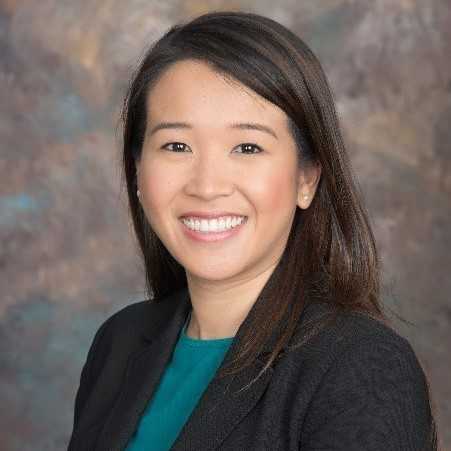
Melody Wen
Business Resilience & Crisis Management
Aerospace manufacturing company
Ok Doomer – The Crisis Fatigue
Playing on the “Ok Boomer” term meant to define frustration from one generation towards another, a similar concept can be applied between crisis / emergency / risk managers and the world. In the crisis management space, we are constantly preparing, preventing, or responding to threats thus easily being labeled by others as the “doom and gloom” group. The presentation will focus on Doomism and leveraging our knowledge to lead our organizations as a beacon of optimism.
More About Melody
Melody Wen currently leads Global Security’s Business Resilience & Crisis Management program at an aerospace manufacturer. She leads initiatives to safeguard the company’s global critical assets – people, sites, products, operations, and reputation. Melody has led emergency & crisis management and business continuity programs in different spaces such as technology, financial institutions, healthcare systems, higher education, and insurance. She started her career with an internship at FEMA and later the Port Authority of NY & NJ’s Aviation Security & Technology Department. Melody found her passion for the field after volunteering with the American Red Cross for years preparing and helping New Yorkers through crises.
Closing Remarks: 4:45 PM – 5:00 PM
June 6th – Training
The Wyndham Newport Hotel
There are 2 training session this year with a morning and afternoon session.
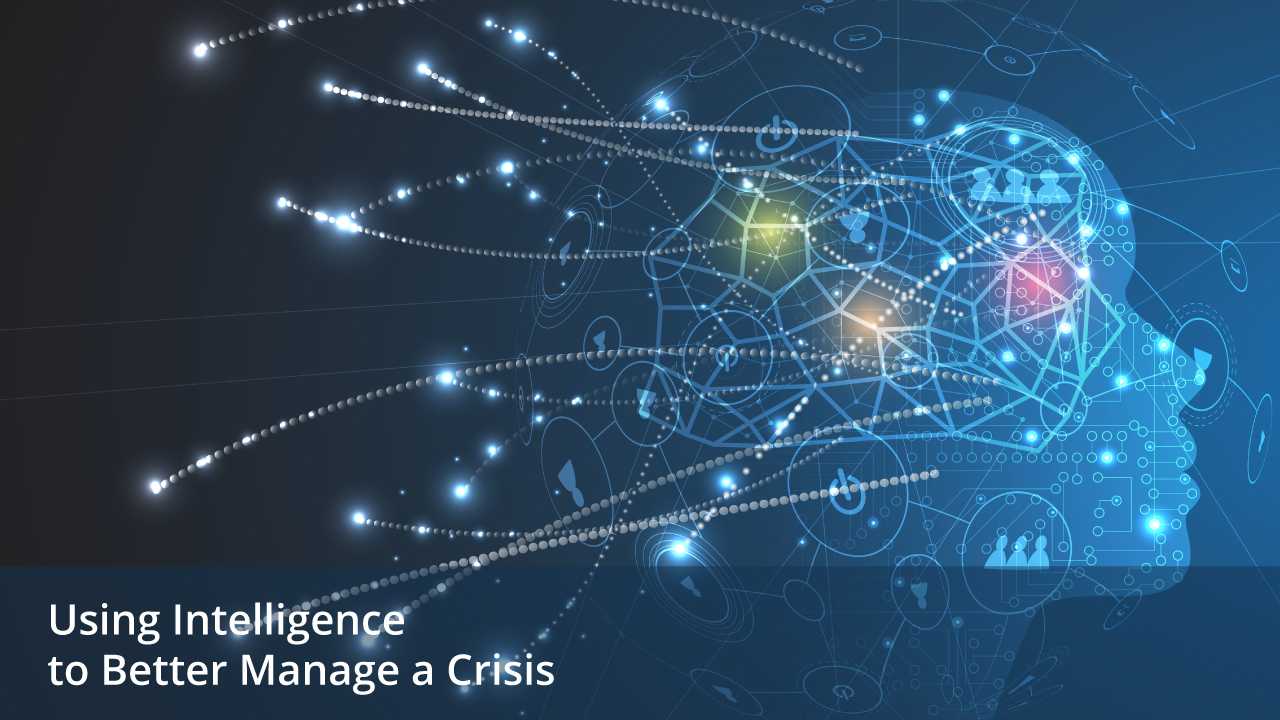
Morning Training Session
Business leaders and risk managers face a daunting threat environment in 2024. This year, learn more about how business leaders can use strategic intelligence to plan for and mitigate increasingly interconnected threats and to ensure business resilience in the face of evolving crises.
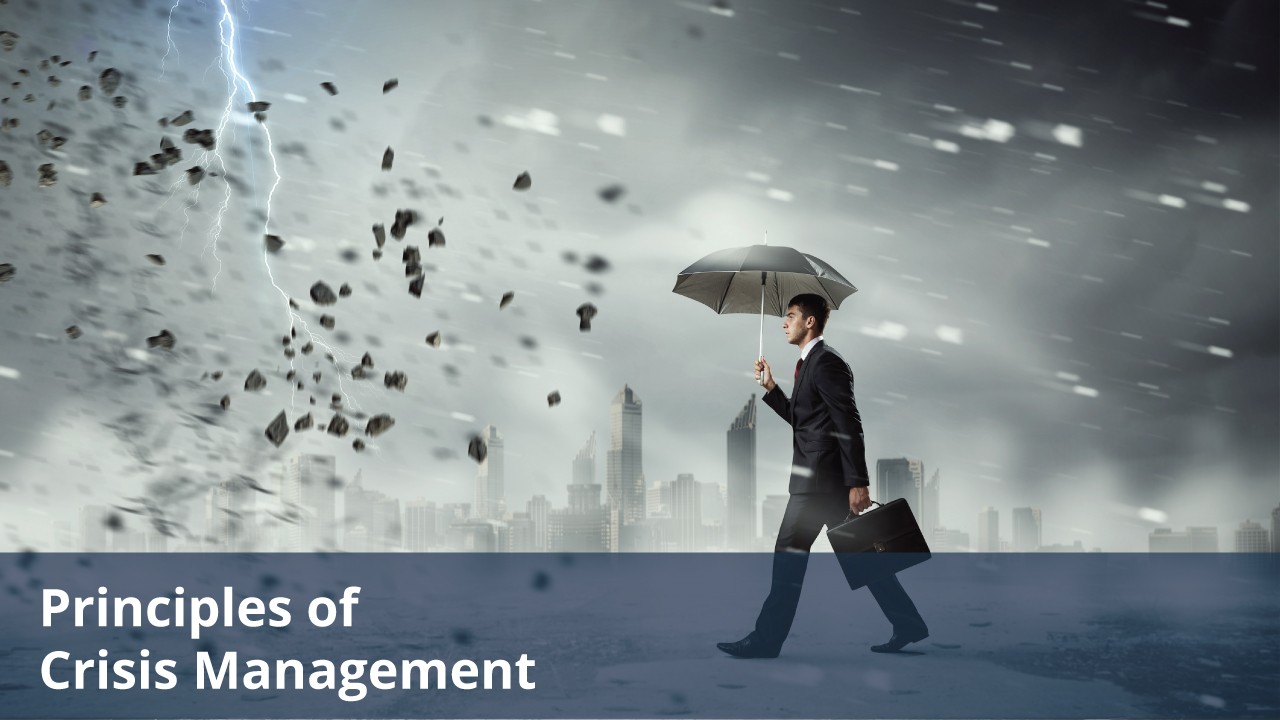
Afternoon Training Session
Principles of Crisis Management will cover the characteristics of a crisis, and a framework to manage the life cycle of a crisis from horizon scanning for potential issues, through closure and remediating gaps or Lessons “to be” Learned.
Each session is 4 hours with Lunch being served between the morning and afternoon sessions.
Schedule:
Morning Session is from 8:00 AM to 12:00 PM
Lunch is 12:00 PM to 1:00 PM
Afternoon Session is 1:00 PM to 5:00 PM
ICMC Sponsors
Subscribe to Our Newsletter
Sign up for our newsletter to get up to date information regarding ICMC






